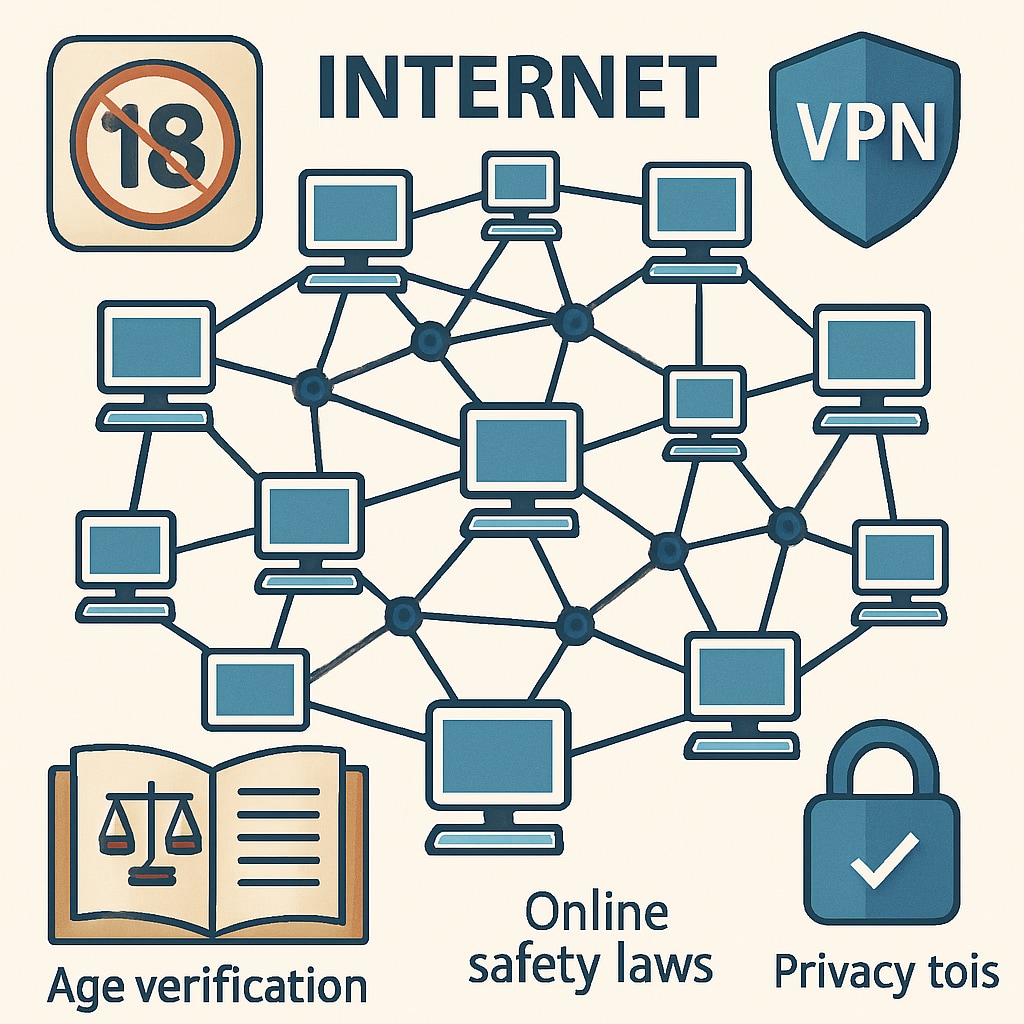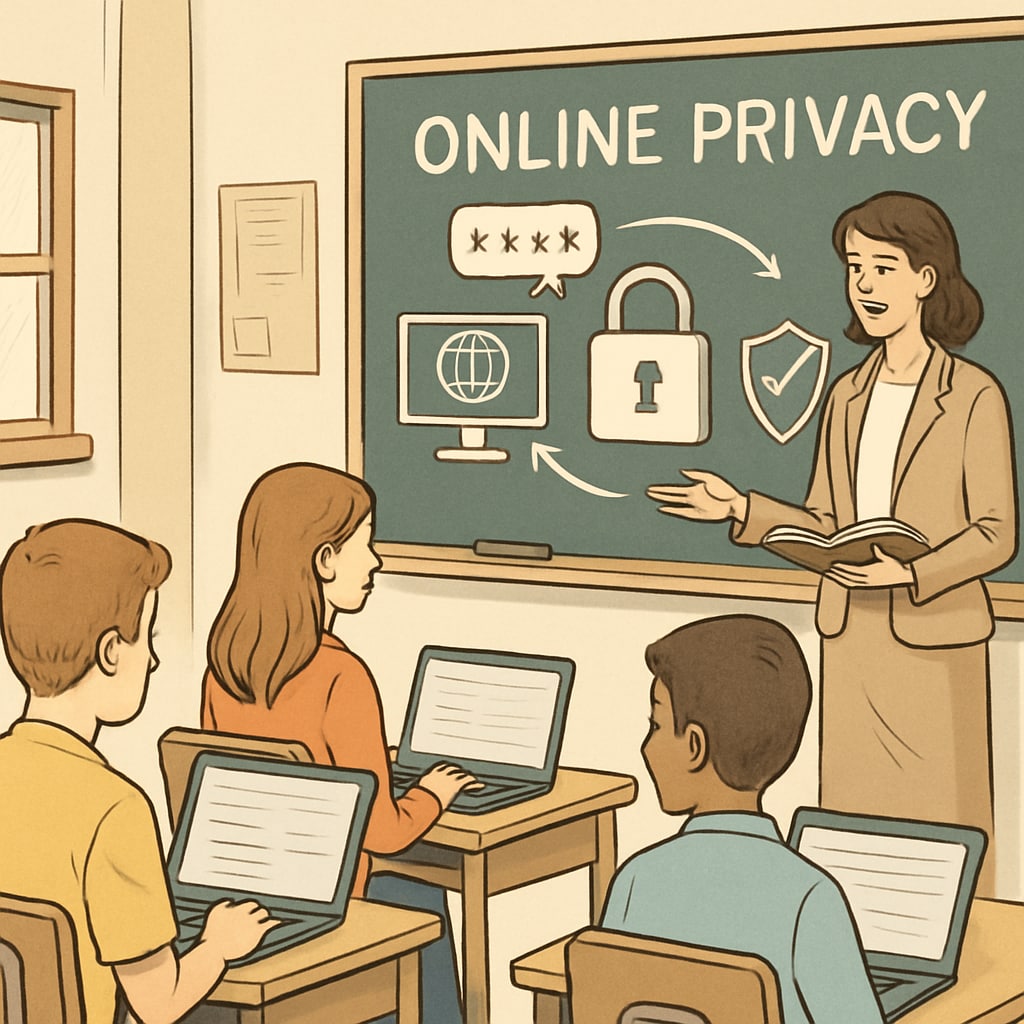With the implementation of age verification laws, such as those introduced in the UK, the use of Virtual Private Networks (VPNs) among internet users has surged. These laws, designed to safeguard minors from inappropriate content, have sparked debates about privacy, digital literacy, and responsible internet use. For K12 students, this evolving digital landscape presents an opportunity for educators to teach critical online safety and privacy skills. By addressing these challenges through education, we can foster a generation of responsible digital citizens.
Understanding Age Verification Laws and Their Impact
Age verification laws aim to restrict access to age-sensitive content, ensuring that minors are protected from harmful online material. The UK’s Online Safety Bill, for instance, mandates platforms to verify users’ ages before granting access to certain content. However, these regulations have prompted an unintended consequence: a rise in VPN usage. VPNs allow users to bypass geographic restrictions and mask their identities, which can undermine the effectiveness of age verification measures.

This trend highlights a critical gap in digital education. While laws are essential for safeguarding minors, they must be supplemented with efforts to enhance students’ understanding of responsible internet usage. Without proper guidance, young users may misuse VPNs, exposing themselves to other risks such as malware, phishing, or data breaches.
The Role of K12 Education in Promoting Digital Literacy
In the digital age, K12 education plays a vital role in equipping students with the skills needed to navigate the internet safely. Schools should focus on teaching the following key areas:
- Online Safety Awareness: Educating students on the importance of protecting their personal information and recognizing online threats such as phishing scams or malicious links.
- Understanding Privacy Tools: Introducing the benefits and risks of using privacy tools like VPNs, including when and how to use them responsibly.
- Critical Thinking: Encouraging students to evaluate the credibility of online content and understand the implications of bypassing age restrictions.
- Respect for Digital Laws: Teaching the importance of complying with regulations designed to protect individuals and communities.
By integrating these topics into the curriculum, educators can empower students to make informed decisions about their online activities. These lessons also prepare students for a future where digital literacy will be an essential life skill.
Balancing Protection and Privacy in the Digital Era
One of the challenges of implementing age verification laws is striking a balance between protecting minors and respecting users’ privacy. Critics argue that some verification methods, such as uploading identification documents, could compromise user privacy and lead to data misuse. This concern underscores the importance of educating students about the ethical and technical aspects of online privacy.

For example, educators can use case studies to illustrate the consequences of careless online behavior or misuse of privacy tools. Additionally, schools can organize workshops or invite cybersecurity experts to provide hands-on training in online safety practices. These initiatives not only enhance students’ skills but also raise awareness about the broader implications of digital laws and privacy concerns.
Preparing Students for a Digitally Responsible Future
As age verification laws continue to evolve globally, the responsibility of fostering digital responsibility falls on both policymakers and educators. By integrating online safety and privacy education into K12 curricula, schools can address the challenges posed by these laws and the rise of VPN usage. This dual approach ensures that students are not only protected from harmful content but also equipped with the knowledge to navigate the internet safely and ethically.
In conclusion, the rise in VPN usage following the UK’s age verification laws highlights the need for comprehensive digital education. By focusing on online safety, privacy awareness, and responsible internet use, K12 education can pave the way for a future where students are empowered to thrive in the digital world.
Readability guidance: The article uses short paragraphs and lists to enhance readability. It balances technical details with accessible language, ensuring clarity for a wide audience. The content includes transition words like “however,” “for example,” and “in addition” to maintain a logical flow.


